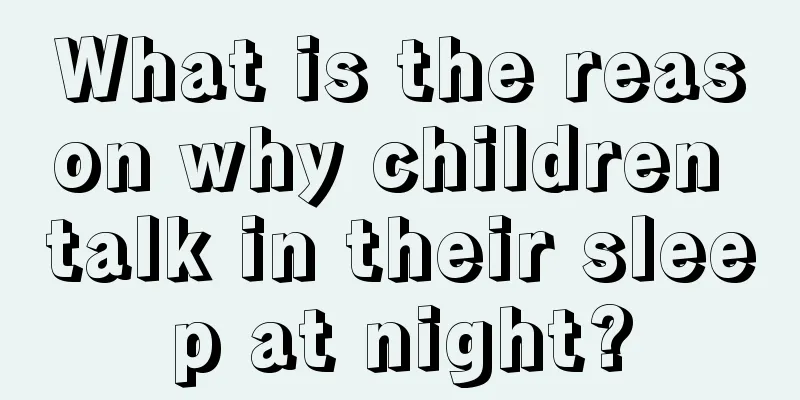The role and function of magnesium in children

|
Trace elements play a vital role in the growth and development of the human body. Magnesium, which we are going to talk about today, is also a trace element. Magnesium can assist the absorption of calcium and potassium, inhibit muscle excitability, maintain the structure and function of the central nervous system, and regulate enzyme activity. In the growth and development period of children, magnesium also plays a very important role. Today, let’s learn about the role and function of magnesium in children with the editor. Magnesium has a significant effect on the body. It plays a very important role in maintaining the structure and function of the central nervous system, inhibiting the excitability of nerves and muscles, ensuring normal myocardial contraction and the elasticity of coronary arteries, regulating enzyme activity, and ensuring the number of potassium ions in cells. The role of magnesium: It is a cation in cells and is mainly concentrated in mitochondria. It is extremely important for the biological activity of many enzyme systems, especially those related to oxidative phosphorylation. Magnesium in the extracellular fluid cooperates with calcium, potassium, and sodium to maintain the excitability of muscle nerves. It is necessary to maintain the normal function and structure of the myocardium. Adults who lack magnesium will suffer from chronic diarrhea, depression, physical weakness, and frequent dizziness. Children who lack magnesium will become indifferent and have weak muscles due to diarrhea. If you lack magnesium, you should take some magnesium salt drugs. Pay attention to your diet. Wheat, millet, beans, oats, barley, and meat all contain magnesium. Magnesium is one of the most important nutrients for maintaining human health. This mineral works throughout cells and stabilizes them. Magnesium affects nearly every important body function, from heartbeat and bone building to blood sugar regulation. It plays an important role. Magnesium can also make the skin more beautiful. Women after menopause are particularly prone to insufficient magnesium, which often causes improper blood clotting, leading to heart attacks and strokes. Magnesium is a central element in chlorophyll and is just as important as calcium, but it doesn't get the same attention as many other supplements, nor is it considered a cutting-edge raw food supplement. However, the more we discover about magnesium, the more we realize that it is a truly amazing supplement. Magnesium is a mineral necessary for enzyme action and plays a vital role in assisting the absorption of calcium and potassium. It plays an important role in physiological reactions such as muscle contraction, heart beating, and hormone action. Magnesium is essential to all living cells, just as iron is present in hemoglobin, and magnesium is even more essential when the human body consumes energy. Its main function is to form bones, it helps transmit nerve impulses, and it is also important for muscle contraction. Magnesium is a mineral that works silently, making people almost forget its existence. Magnesium is also known as an anti-stress mineral that relaxes nerves. It directly starts from the cell metabolism that is invisible to the naked eye, thereby stabilizing our body. Whether it's the cells of the heart or lungs, the muscles or blood vessels, if there's a tendency to overreact, magnesium can be used to soothe and relax the body. It is one of the minerals that can calm and make people feel happy. It is often used to fight tension and anxiety. Especially when taken together with calcium, it can be used as a natural sedative. The content of magnesium in the human body is much less than that of calcium and phosphorus, about 20 to 35 grams for adults. About 60% of it is deposited on the surface of bones in the form of phosphate and carbonate, and the rest is mostly present in cells. Magnesium deficiency can lead to symptoms such as muscle tremors, paresthesia, diarrhea, and even convulsions, seizures or arrhythmias. |
<<: What causes hernia in little girls
>>: Six-year-old speaks indistinctly
Recommend
Is it autism if a child is not sociable?
Nowadays, many children are unwilling to communic...
What are the classifications of cardiovascular and pulmonary diseases?
Children are prone to various disease symptoms, a...
What are the symptoms of autistic babies?
In today's society, mental health has become ...
What causes synovitis in children?
Pediatric synovitis is a disease with a high inci...
What vaccines do babies need?
I believe many people know that a baby’s body is ...
One year old child with diarrhea
No matter what disease the baby has, it is very d...
2 year old baby nutritional porridge
Parents should all know that the gastrointestinal...
Is it good for children to eat watermelon?
Summer is hot and dry, and many people will buy w...
How to deal with fever and cramps in children
The physical health of children is an issue that ...
Is it good to use enema for children’s constipation?
Constipation is a disease that generally occurs i...
Spring recipes for kids
Children are in the stage of growing up, so as pa...
Causes of cold in four-month-old babies
In fact, babies need careful care in all aspects ...
What to do if your baby has bloody stools
Many people have experienced red stools or stools...
Two and a half year old child walks unsteadily
Two and a half year old child walks unsteadily If...
What should I do if my three-month-old baby has diarrhea?
Many babies will have diarrhea symptoms. This is ...









